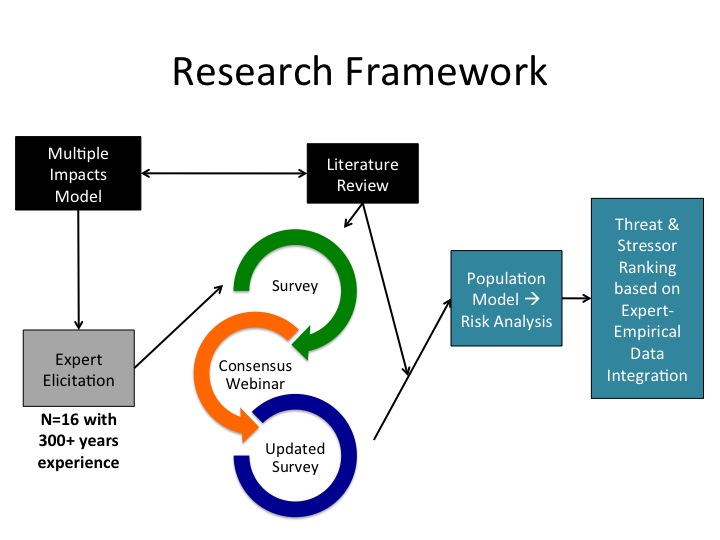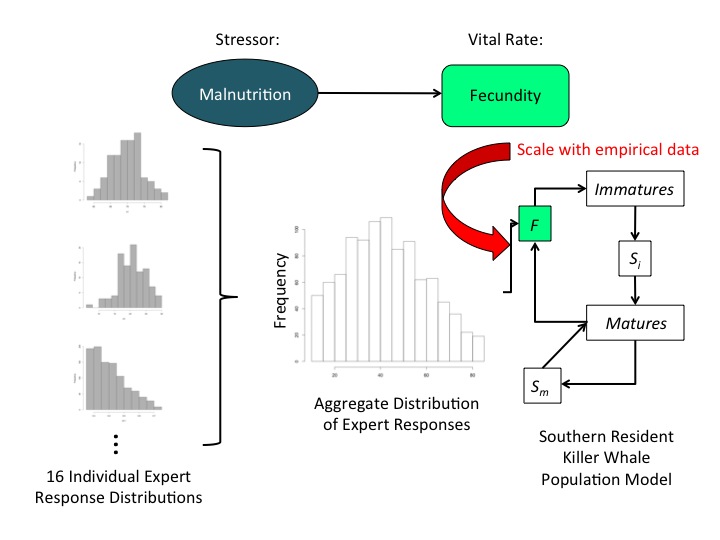Methods
Summary
We designed a research framework that resembles other multiple impact assessments, however our approach has a few innovations! We started with a literature review to identify all of the threats that marine mammals face in the modern ocean, as well as a review specific for the threats that the Southern Resident Killer Whales face. We then developed a comprehensive multiple impacts model applicable to any marine mammal population in any ocean. We adjusted the full model for Southern Resident Killer Whales, and then designed a survey that asked killer whale experts to anonymously put values (their best educated estimate) on each section of the model.
Innovation #1 -- complete!
We issued the first survey, and then held a “Consensus Webinar” to have an open dialogue with the experts to inform the research process. At this point, of course, experts could learn what other experts were participating, but the results were presented in aggregate. In short, we said, “Here is what you told us. Is this what you meant to tell us? Is this what you think is really happening?” And then we opened the floor for conversations between experts, and between experts and the research team, that led to altering some of the questions, definitions, and conclusions. Based on the feedback from the webinar, we issued an updated survey to better capture the most meaningful information. The killer whale expert community was eager to participate and share their knowledge, and we are extremely grateful for their time.

Innovation #2 -- complete!
In addition to capturing the experts' best estimates, we also asked them to tell us how confident they are that their opinion is accurate. With this information, we can essentially estimate the confident intervals around their estimates.
Innovation #3 -- in progress
Now, we are scaling the expert opinions with empirical information, meaning we are giving empirical information (peer-reviewed and vetted) more weight than expert opinions, but still considering all the information.
Once the cumulative impacts model is populated with quantities, it will propagate through to the Southern Resident Killer Whale population model, which then allows for additional analyses such as elasticity and risk analyses.
Lastly, we will be able to rank threats based on their influence on a Southern Resident Killer Whale population vital rate (e.g., survival of reproductive females) or population abundance outcome of interest. Finally, we are writing all of our methods and results into a peer-reviewed publication in an open-access journal.
Protocols
This project has not yet shared any protocols.